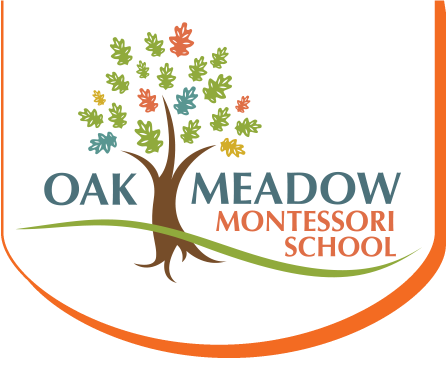Oak Meadow is an independent school rooted in the child-centered Montessori philosophy serving over 30 communities in the metro-west region of Boston, Massachusetts. We are a diverse community with students from 15 months through 8th grade.
When are we open?
Beginners (15 mos. and older) Half-day: 8:00am to 11:30am
Beginners (15 mos. and older) Full-day: 8:00am to 3:20pm
Children’s House (3 yrs. and older) Half-day: 8:30am to 11:30am
Children’s House (3 yrs. and older) Full-day: 8:30am to 3:20pm
Elementary (grades 1–6): 8:30am to 3:30 pm
Middle School (grades 7–8): 8:00am to 3:40pm
Note: On Friday, there is an early dismissal for full-day students only. Those students are dismissed one hour earlier.
Before and After Care
Oak Meadow offers Before Care, starting at 7:30am, for Children’s House students and older. We offer After Care for all program levels until 6:00pm (until 5:00pm on Early Dismissal Fridays). Please click here for further information.
We also offer a variety of After-School Enrichment Programs. Please click here for further information.
Who are we?
Type: Independent, co-educational Montessori day school
Year Founded: 1977
Ages we serve: 15 months through 8th grade
Age Requirements: Beginners Program: children must be 15 months old
Children’s House: Children must be 3 years old by September 1
What is the make up of the school?
Students: 160 students from 30 neighboring towns
Faculty: 12 lead teachers; 14 assistant teachers
Specialists: Music, Art, Physical Education, Spanish, Drama, Nature Program
Student to Teacher Ratio:
- Beginners 12:3 and 10:2 in the smaller classroom
- Children’s House 10:1
- Lower Elementary 10:1
- Upper Elementary 9:1
- Middle School 7:1
Accreditation: Oak Meadow is fully accredited by the Association of Independent Schools in New England (AISNE) and the American Montessori Society (AMS). We are also a member of the National Association of Independent Schools (NAIS).
Geographic representation
Oak Meadow draws families from over 30 communities, including Acton, Andover, Ayer, Berlin, Billerica, Bolton, Boxborough, Boylston, Carlisle, Chelmsford, Concord, Dunstable, Groton, Harvard, Lancaster, Leominster, Lincoln, Littleton, Lowell, Marlborough, Maynard, Nashua, Stowe, Sudbury, Townsend, Tewksbury and Westford.
What is “Montessori”, and how does it impact your students?
“Montessori” is the short name for a child-centered philosophy of education and method of teaching, brilliantly developed by the late Italian scientist and physician, Dr. Maria Montessori. It is not affiliated with any religion or political organization. Montessori schools around the world are free to interpret its principles in different ways, so programs can vary, and schools like Oak Meadow can keep the program current while preserving time-tested approaches and core values. At Oak Meadow, central Montessori principles, such as encouraging a child’s innate desire to learn, creating the prepared child-friendly learning environment, and supporting children’s need to work at their own pace remain the foundation of the program. At the same time, Oak Meadow does not let the program stagnate: dedicated faculty enriches the curriculum with the very latest validated research from educational, behavioral, and developmental experts. Because it is not trademarked, any school is free to use the Montessori name or principles. To be sure of a school program’s quality, parents are advised to check for accreditation.
How do you integrate Montessori philosophy with current research?
Oak Meadow enhances the curriculum with the very latest validated research from educational, behavioral, and developmental experts. The result is a dynamic synthesis of time-honored and proven Montessori principles of education, and cutting-edge strategies for the development of deep critical thinking skills and self-confidence in students through grade eight. Current research supports the validity of many long established Montessori approaches and core values such as multi-sensory, interdisciplinary, and project-based learning, as well as the whole-child approach to education.
Is Oak Meadow an accredited school?
Absolutely! We are proud to be fully accredited by the Association of Independent Schools in New England (AISNE) and the American Montessori Society (AMS). We are also a member of the National Association of Independent Schools (NAIS).
Are students prepared to transition to another school when they leave Oak Meadow?
Oak Meadow eighth grade graduates are very well prepared for secondary school. Guidance counselors and admissions officers from our area’s top private and public high schools report that our students excel both academically and as members of their new community. Our students have a love of learning, poise and confidence, and the skills to navigate a challenging world.
What is Oak Meadow’s view of assessments?
Student assessment, through observation, dialogue, testing, project-based learning, and portfolios, is an essential part of Oak Meadow’s classroom approach and the Montessori classroom. Every day, teachers are assessing their student’s work and progress to plan their next lessons and to individualize instruction. Daily assessment allows students to continue through the curriculum at their own pace without having to wait for others or advance before they are ready. In addition, Oak Meadow’s Upper Elementary and Middle School programs administer standardized tests once a year.
What is the value of multi-age classrooms?
Evidence shows that young children flourish in classes that span two or three years. Our faculty are able to know their students well, which allows them to direct a child’s lessons based on their particular interests, enrich curricula where needed, and provide alternate avenues for accomplishment and success. Multi-age classrooms allow for older children to assist and mentor their younger classmates, while younger students look forward to moving on to the more challenging activities they see around them. Most importantly, multi-age classrooms allow for each child to master work at his or her own pace. Students move on to advanced topics and lessons as they are academically and developmentally prepared for them, not simply when they reach a given age or grade level.





